Do you have a source for that?
Save the CBC 🇨🇦✌️ on Bluesky
Pierre Poilievre once said politicians shouldn’t stay in office for life. That was 1999. It’s 2025—he’s still here, with the same angry rhetoric and no results. Now he wants to kill public media and silence journalists. What’s he so afraid of? #SaveTheCBC #CdnPoli #Canada
"Politics should not be a lifelong career, and elected officials should not be allowed to fix themselves in the halls of power of a nation... Therefore, I would institute a limit of two terms for members of Parliament" - Pierre Poilievre 1990
Link to original post.
Well, they didn’t say you’re not Canadian
But saying "a Canadian would know that" is necessarily insinuating that they are not Canadian for not knowing a fact. Which regardless of if the person did know the fact, is a ridiculous criterion to determine if someone is Canadian.
Furthermore, to suggest that Trudeau's views aren't synonymous with the Liberal party, ignores a big part of reality. That the party leaders wield incredible amounts of influence within their parties. If anything, party leaders are perhaps the physical embodiment of a party.
You are by attacking the source when you have no other alternative for what is in the article
lmao. what ever shall we do if the Ottawa Citizen didn't uniquely create this article? There is no known alternative for this article, so I suppose it's of utmost critical value?
This point is irrelevant, because if I can find an article from a better source, then the point is moot. And besides, you are insinuating that the Ottawa Citizen provides a service that is unique, and cannot be replicated, which is untrue.
Regardless of who owns the thing, it is still headquartered on Canadian soil, employing Canadians, and providing information that “real” Canadian sources aren’t.
- By going to the site, you are providing it clout that it is undeserving of. And when Canadian media is struggling, that's not a good thing.
- actually there is a conflict of interest, when the ownership is American. These kinds of media output articles more favourable to their owners, because that is literally their business model.
- Is it really headquartered on Canadian soil, employing Canadians, and providing real information? I'd rather take my chances with real Canadian owned and operated media.
So give me another source, or shut up about it.
Nah. You shut up about it.
- They're American owned and infiltrating Canadian culture and politics, that still doesn't mean the information isn't sound.
- I agreed with attacking the points, not the person. I never even reference the article in this sentence.
- Sources acceptable for my consumption, again doesn't mean I am insinuating that American owned media doesn't provide sound information.
So, who is saying the information isn't sound?
If the information is sound it doesn’t matter who is saying it
Who is saying the information isn't sound?
Actually in this specific scenario, when we are trying to encourage and grow the buy Canadian movement, and move away from reliance on American, it makes sense.
Excellent, they've been added.
Also, stay tuned for a secret project I've been working on.
Do you disagree with the articles points? Is there any misleading or false information in the article?
I hear you. Attack the points, not the person. In general, agreed.
Do you have an alternative source reporting on this that is acceptable to you for consumption?
Not on this particular topic, but I also haven't looked. See American owned media pretending to be Canadian, infiltrating Canadian culture and politics.
I appreciate your engagement on this topic, and I understand your concerns based on your experiences abroad. Let me address your points and clarify what PR advocates are actually proposing for Canada.
First, let's distinguish between different PR systems. What works in the Netherlands (list PR) isn't what's being proposed for Canada. The main PR options suitable for our context are:
-
Mixed Member Proportional (MMP) - You maintain your local MP exactly as you have now, plus regional MPs to ensure overall proportionality. Regarding "enormous amounts of seats" - this is largely subjective, and MMP can be implemented without increasing the total number of seats at all. The legislature size is a design choice, not an inherent requirement.
-
Single Transferable Vote (STV) - Multi-member districts where you rank candidates by preference. Ireland has used this successfully since 1922.
Regarding your specific concerns:
On "ungovernability": Research shows PR countries actually have more stable policy direction, not less. What looks like "instability" to outside observers is actually democratic negotiation. Policy lurch costs far more - when each new FPTP government undoes the previous government's work.
On constitutional courts: While important for legal oversight, a constitutional court isn't universally considered a requirement for "proper democracy." Many well-functioning democracies have different systems of judicial review. The core of democracy is citizens having meaningful representation - which is precisely what PR aims to strengthen.
On local representation: Your experience of feeling represented by an MP you "can walk up to" is actually quite rare. For the majority of Canadians whose preferred candidate loses in their riding, they have no representative who shares their political values. Under FPTP, roughly half of all voters cast ballots that elect nobody at all - they have zero representation aligned with their views.
On subjective fairness: While cultural and historical factors certainly influence democratic experiences, we don't need to rely on subjective impressions. We have objective mathematical criteria for evaluating electoral systems: proportionality indices, wasted vote percentages, and voter satisfaction metrics all demonstrate that PR systems outperform FPTP in translating votes to seats fairly.
The fundamental democratic principle remains: in a democracy, citizens deserve representation aligned with their values. When 50% of votes have zero effect on election outcomes, as happens under FPTP, we have a serious democratic deficit.
Fair Vote Canada advocates primarily for MMP or STV - both proven systems that would work well within our Westminster parliamentary tradition while ensuring every vote counts.
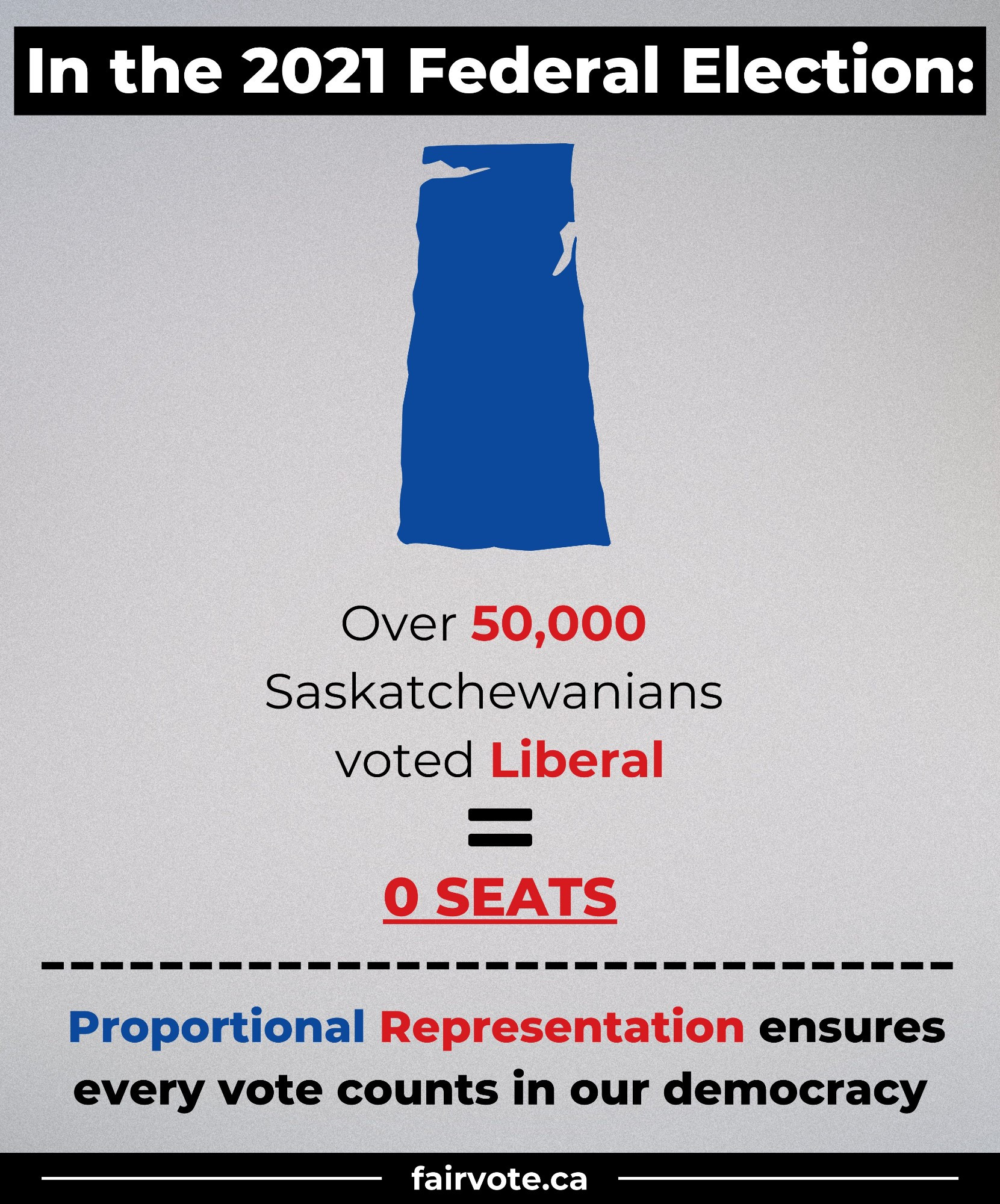
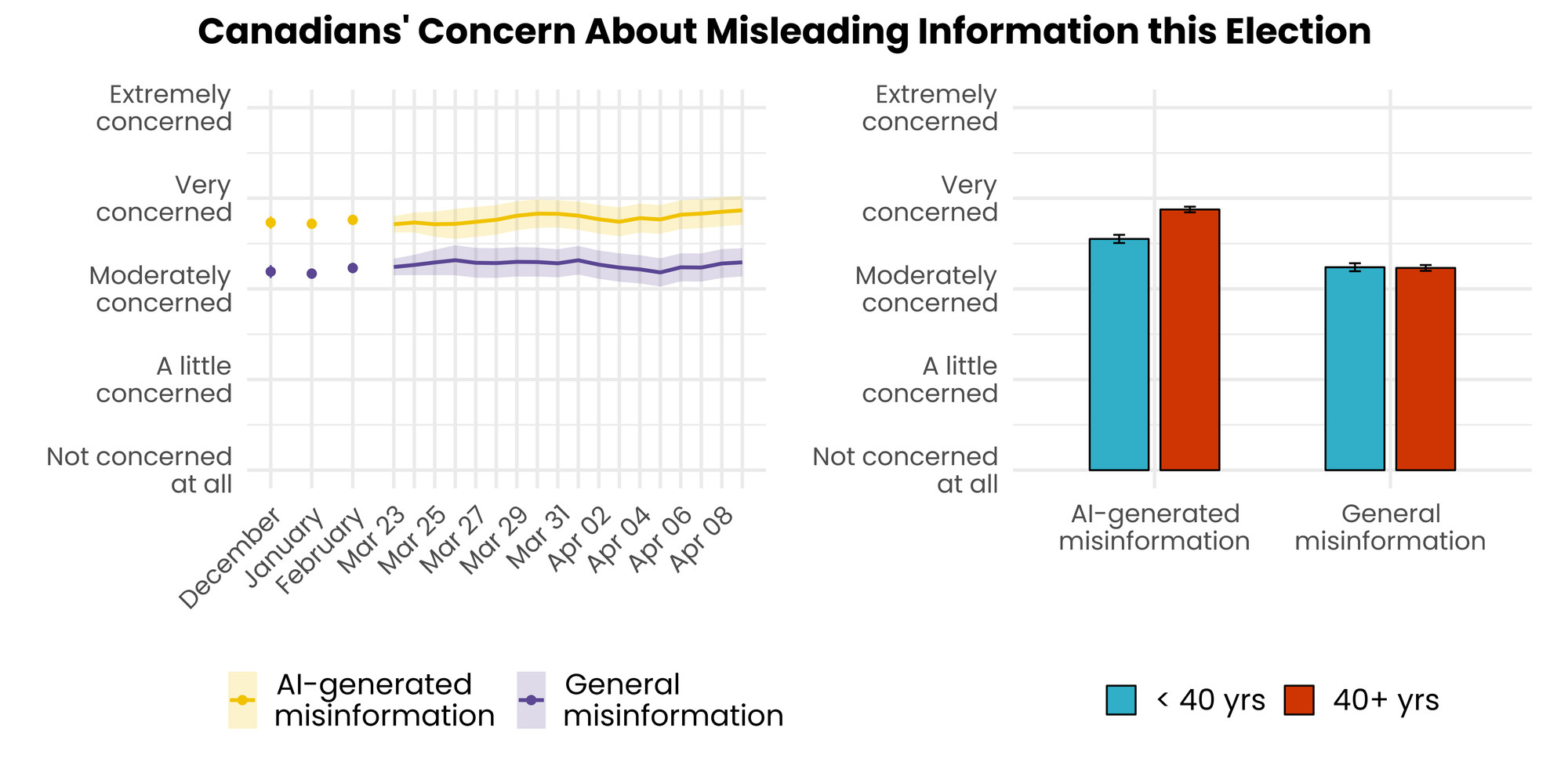
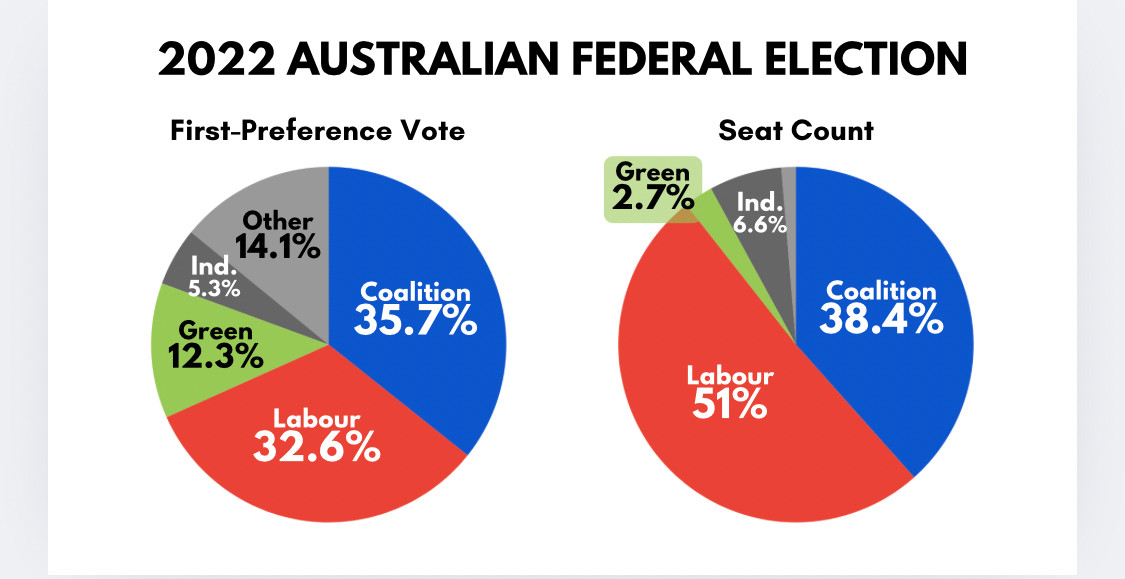
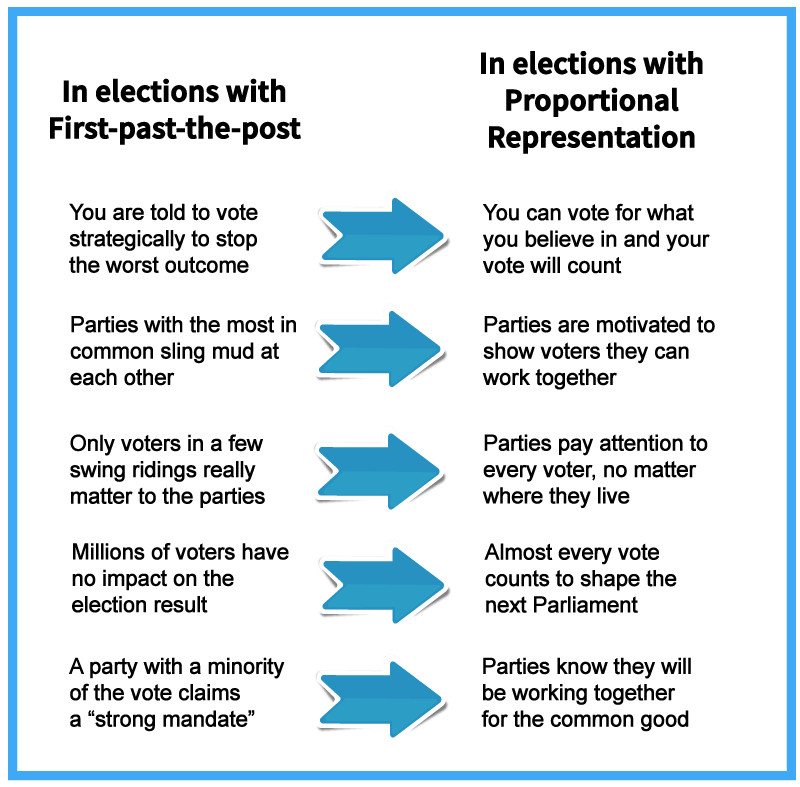
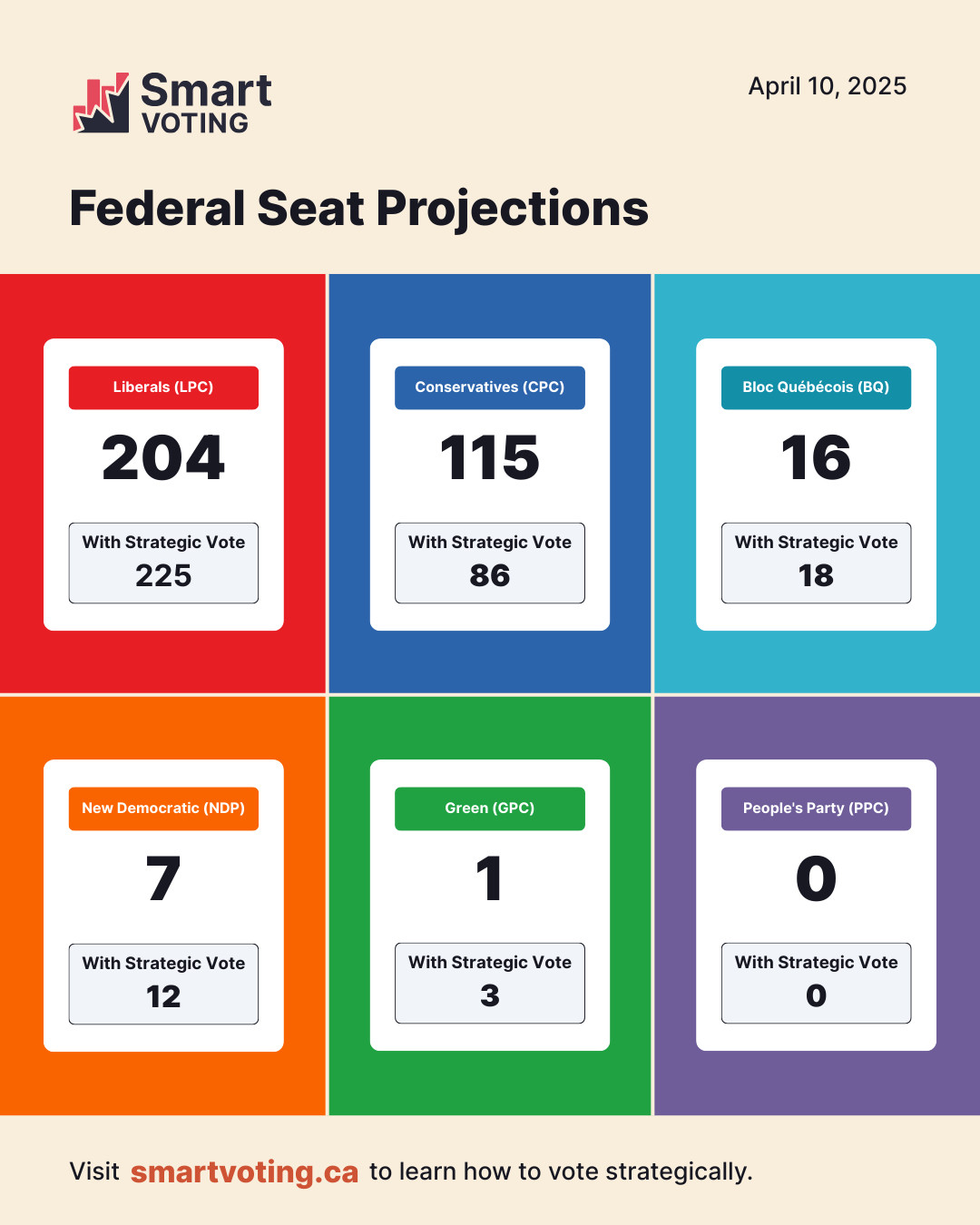

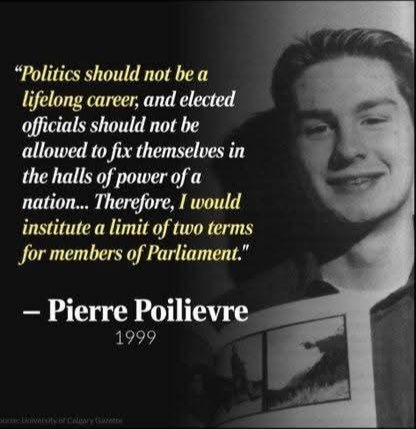
Also see: A Simple Guide to Electoral Systems.